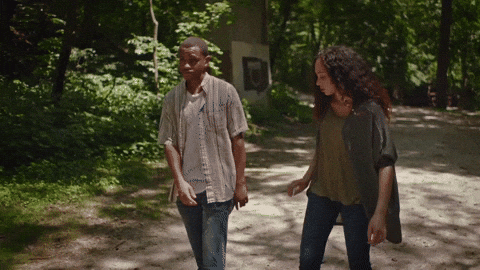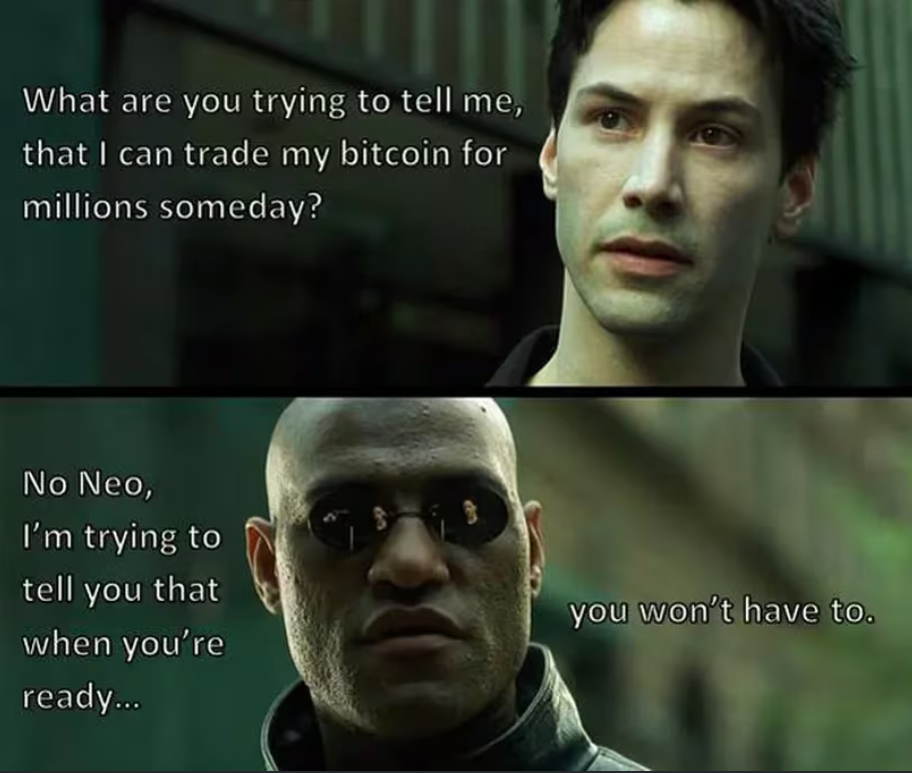I still remember walking on Ocean Beach with my mother in San Francisco: I’m 40 years old and I feel I have to tell her, “Look, I cannot make relationships work. I’m sorry, I’m just never going to make you a granny.”
This moment is particularly hard because by far the most important goals in my whole life were to be a husband and a dad.

I didn’t grow up in a family where I felt a great sense of belonging. My dad was an alcoholic. My mother was heartbroken. I grew up feeling less-than, ashamed, sad, and broken in terms of love and relationship. All I ever wanted was to be able to sort myself out so I could make love work.
But even though I was a poor boy, sent to private schools, I had a great education and started working as a stockbroker in San Francisco. Everything suggested that I was going to be able to make money to cover up my shame.
But I hated the work.
Eventually, as a lot of broken people do, I became a therapist (ha ha). But I knew the couples therapy that I was providing to clients just wasn’t good enough. There was something that was not working about the way I was trying to help people.
That’s how I came across Emotionally-Focused Couples Therapy.
When I learned EFT, not only did I learn how to help others, but it was only by incorporating this protocol of attachment theory and systems theory and making it an experiential, transformational process that I was finally able to make love and relationship work.
I can now be the dad that I never had to my two kids and the husband my dad never was to my mother.
But I really struggled and hurt financially.
Becoming a therapist came with the reality that I was never, ever going to be able to make enough money to buy a house for my family in the city I lived in. I just couldn’t compete with the programmers, middle managers, venture capitalists, and tech founders in San Francisco.
I was hurting so much about money and how no matter how hard I worked, I could never ever get ahead. Whatever amount of savings I made was always beaten by the inflation of house prices. I knew the system was broken, and I resented it. I felt like I was a failure.
And then I discovered Bitcoin.
Finally, I realized, this is it — this is what I’ve always been waiting for.
Yes, at first I just traded it like everybody else. But slowly, over time, I put in my thousand hours and now I guess I’m what people call a bitcoin maximalist. I HODL like my life depends on it because, just like Emotionally-Focused Couples Therapy gave me the hope for a better life that I’ve actualized, Bitcoin gave me hope. And, since 2017, I’ve been able to actualize my family’s longed-for financial future.
Pain is the change-maker
But let’s be honest: the information didn’t change my life.
I like to say people only change out of inspiration or desperation, and you can count the inspired ones on one hand. For the rest of us, pain is the teacher.
We change when our current way of being hurts like hell.
Couples don’t stroll into my office, latte in one hand, as students of life who are doing awesome. They show up because the fights, the loneliness, and the ice-cold silence became intolerable—because ‘bad enough’ finally arrived.

It’s attachment theory in action: We’re all hardwired to need to be emotionally bonded from the cradle to the grave. It’s not optional. So the pain of disconnection is a feature, not a bug, of what it is to be a human being.
Hurt is what cracks the door open. It’s the reason you’re finally willing to look at something radically different, whether that’s attachment theory for your marriage or a digital asset with an orange mascot as your store of value. Look at Michael Saylor. He didn’t embrace Bitcoin because he thought cryptography was sexy; he did it out of desperation. He saw his company’s balance sheet bleeding value against the hurdle rate of the S&P 500 and knew that without a radical change, MicroStrategy would become a zombie company. That pain made him finally listen to a friend about the very asset he once derided.
For me, Saylor is a teacher. He helped me understand money and see our broken financial system, giving me a way to change my own life—just as my mentors did in the relationship realm.
Same Story, Different Domain
When a couple is in pain, my job isn’t to fix them. I’m not a plumber; I’m a mirror. Using the lens of attachment and systems theory, I help them see the dysfunctional system they’ve co-created. My goal is to shift their perspective from an “I” consciousness—where everything is your fault or my fault—to seeing the system as the enemy. I lovingly, and annoyingly, reframe their fights until they see what I see: “You’re not just two assholes yelling at each other. You’re two people protecting yourselves from very old hurts in a very bad way.” Once they see that their system is the problem instead of each other, everything changes. They can finally feel the sadness underneath the rage and say, “I miss you,” instead of “You never listen.”

Bitcoin has its own mirrors. People like Saylor, Max Keiser, and Lyn Alden aren’t selling a ‘get rich quick’ scheme; they are systems thinkers. They hold up a mirror to the broken fiat system, shifting your focus from blaming yourself for not saving enough to seeing the systemic theft of inflation. They force you to feel the truth in the question, “Hey, do you see how you’re bleeding buying power every year, and do you get that it doesn’t have to be this way?” Once you truly see and feel the system, you’re ready for a new protocol.
My Job: Reframer, Pain‑in‑the‑Ass to your Ego Identity
As a couples therapist, my job is to repeatedly hold up that mirror to the pattern you co-create in your relationship, because information alone is not enough. The key isn’t confrontation; it’s validation. I have to reflect your shared pattern in a way that validates both of your experiences. For example: ‘Of course you shut down when he raises his voice—it’s how you’ve learned to feel safe. And of course you pursue her when she pulls away—it’s how you fight for connection.’ By validating that your survival strategies make sense, the defensiveness melts. That safety is what allows you to see the painful system you’re trapped in and, together, begin to unwind it through shared empathy and compassion for me, you, and us.
And yes, in the Bitcoin world, the people with laser eyes relentlessly posting charts, memes, and analogies on social media are powerful signals to those who already have a sense that the game is rigged. I am constantly amazed at Bitcoin YouTubers’ endless capacity to inform and inform and inform.
But Bitcoin communicators are just that: great communicators.
They are not the expert facilitators needed to hold the human heart on a journey from reactivity to suffering, and to transform that suffering into undefended creative action.
I wish more communicators of Bitcoin wisdom could help people through the experiential work of seeing the system, moving from strategies that help them not feel that pain to helping people feel the pain more fully; the creative action to move out of suffering is borne out of deep immersion in the pain.
This reflective process is what allows us to be willing to take in the medicine for our hearts, souls, and wallets that is Bitcoin.

The Consciousness Upgrade
When couples finally “get” attachment, it’s like they’ve been fish in a pond and suddenly someone lifts them out of the water. They see the whole pond — the shore, the sky, the birds. Their world goes from two dimensions to three. They begin speaking a different language. They see the pattern instead of attacking the person. “Oh! We get stuck like this because I withdraw and you pursue. I didn’t know that was even a thing.” It’s the most important shift they can make: from a reactive ‘I’ consciousness to a compassionate ‘we’ consciousness.

Bitcoin is a consciousness upgrade, too. Once you understand the basics—the philosophy, the tech, the economic reality—you can’t unsee it. You look at inflation and think, “Oh, that’s not inevitable; that’s engineered.” You start to develop low time preference and ask uncomfortable questions about every aspect of your life.
And yes, you might stop getting invited to dinner parties because by dessert, you’re shouting, “There is no second best!” after listening to too many Bitcoin podcasts that week.
Fiat Love vs. Bitcoin Love
Let me draw the analogy all the way down. Most modern relationships operate on a flawed, fiat protocol: a Keynesian model of love. It’s a “differentiation model” that says, ‘I am me, you are you, and if we can’t get along, it can’t be helped.’ This approach cynically denies our true nature as an interdependent species and, like a shitcoin, is premined, reactive, volatile, and collapses because you were always just a meal ticket or exit strategy for an independent other.

Bitcoin relationships are like stacking sats. You start by surrendering to the base layer, to the laws of nature: We need each other. From that granite foundation of secure attachment, you build upon that platform to do great things in the world—start a business, reach for the stars, raise a family, create a legacy. It’s not a fantasy; it’s an engineered protocol you commit to when the old way hurts too much.
Pick Your Hard
Here’s the kicker: both paths are hard. Doing the work to heal your relationship is hard. Not doing it — staying in silent resentment or starting over with someone new — is also hard. Educating yourself about sound money is hard. Pretending nothing’s wrong while your buying power erodes is also hard.
The question isn’t whether you’re going to suffer. It’s which suffering leads somewhere better. Do you want the suffering that leads to closeness, honesty, and a life you’re proud of? Or the suffering that leads to more of the same?

Wrapping It Up
So that’s my pitch. If you’re reading this and you’re in pain—good. Pain is honest. Pain says, “This isn’t working.” Whether you’re freaking out about your marriage or your money, the next step is the same: let the pain teach you. Invite a mirror into your life. Get curious about the systems you’re trapped in. Be honest with yourself about the strategies and tactics you are using, so you don’t feel the full brunt of your suffering. Be willing to consider that the strategies you are using, even if they seem like logical things to do, may be keeping you trapped in a perpetual cycle of suffering. And when you find a protocol that’s built on truth—whether it’s attachment science or a distributed and decentralized public ledger—commit to it.
You’re going to pick a hard either way. You might as well pick the one that sets you free.
For my part, I’m no longer 40 years old, walking with my mom and willing the pain of the present moment to wash away with the sand. I’m not working to escape my past. I’m not working to get to tomorrow.
Instead, I get to live in the now — with the love I always dreamed of, financially and emotionally secure in my belonging as a husband, dad, and community member; in our forever home, in our forever life; in a present that isn’t easy or perfect, but is damn good enough.
Now, I get to work to continue to enjoy and love this life that, because of attachment theory, systems theory, Bitcoin, and a hearty helping of pain, I’ve made possible.



